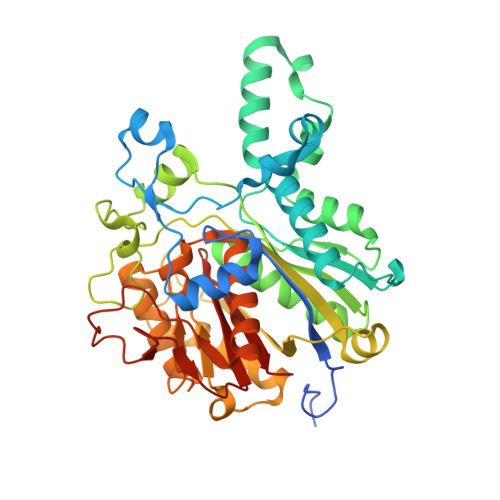Exploring the SAR of the beta-Ketoacyl-ACP Synthase Inhibitor GSK3011724A and Optimization around a Genotoxic Metabolite.
Cunningham, F., Esquivias, J., Fernandez-Menendez, R., Perez, A., Guardia, A., Escribano, J., Rivero, C., Vimal, M., Cacho, M., de Dios-Anton, P., Martinez-Martinez, M.S., Jimenez, E., Huertas Valentin, L., Rebollo-Lopez, M.J., Lopez-Roman, E.M., Sousa-Morcuende, V., Rullas, J., Neu, M., Chung, C.W., Bates, R.H.(2020) ACS Infect Dis 6: 1098-1109
- PubMed: 32196311
- DOI: https://doi.org/10.1021/acsinfecdis.9b00493
- Primary Citation of Related Structures:
6Y2I, 6Y2J - PubMed Abstract:
In the course of optimizing a novel indazole sulfonamide series that inhibits β-ketoacyl-ACP synthase (KasA) of Mycobacterium tuberculosis , a mutagenic aniline metabolite was identified. Further lead optimization efforts were therefore dedicated to eliminating this critical liability by removing the embedded aniline moiety or modifying its steric or electronic environment. While the narrow SAR space against the target ultimately rendered this goal unsuccessful, key structural knowledge around the binding site of this underexplored target for TB was generated to inform future discovery efforts.
- Global Health R&D, GlaxoSmithKline, Severo Ochoa 2, Tres Cantos, 28760 Madrid, Spain.
Organizational Affiliation:



















